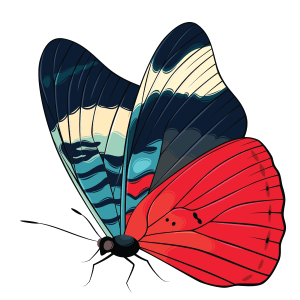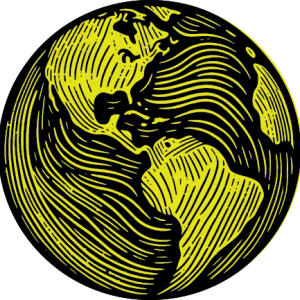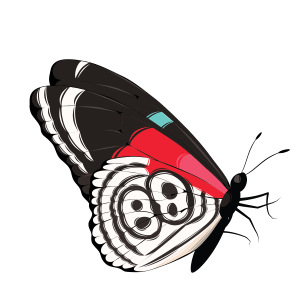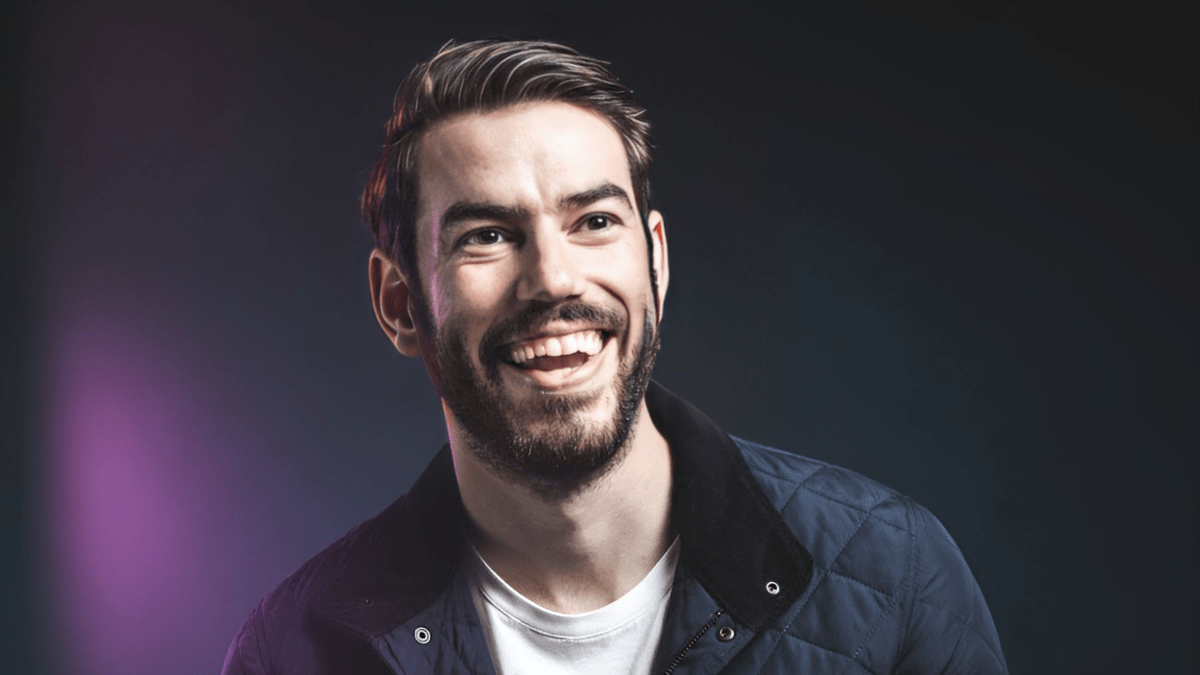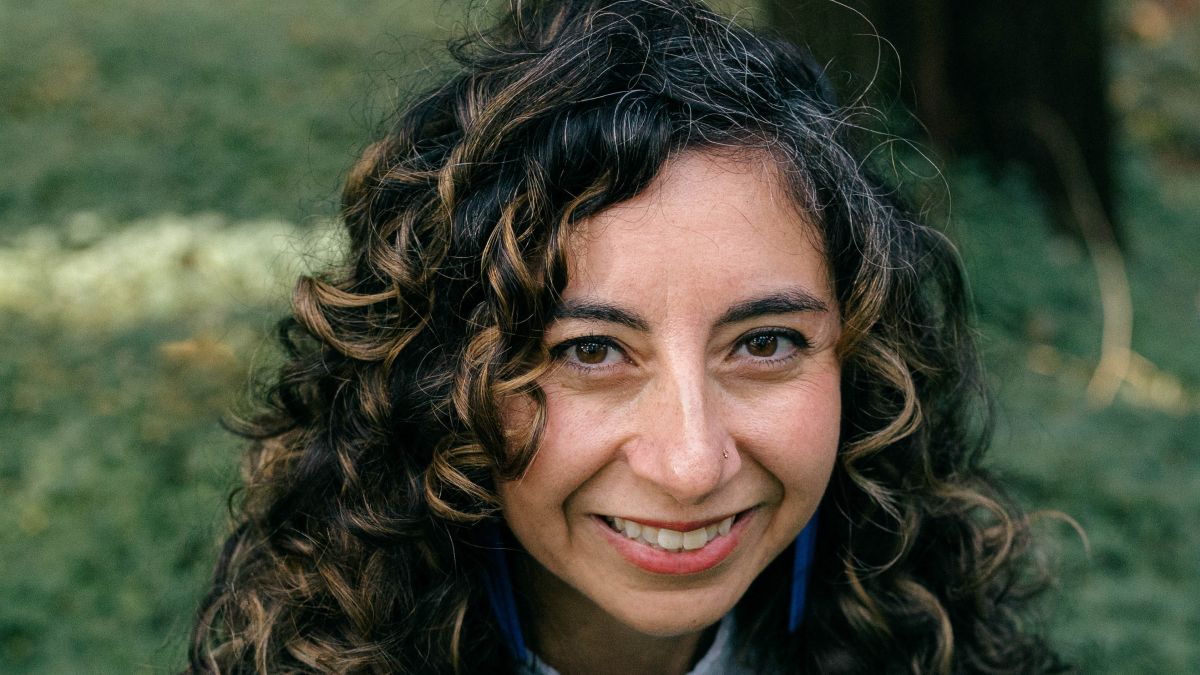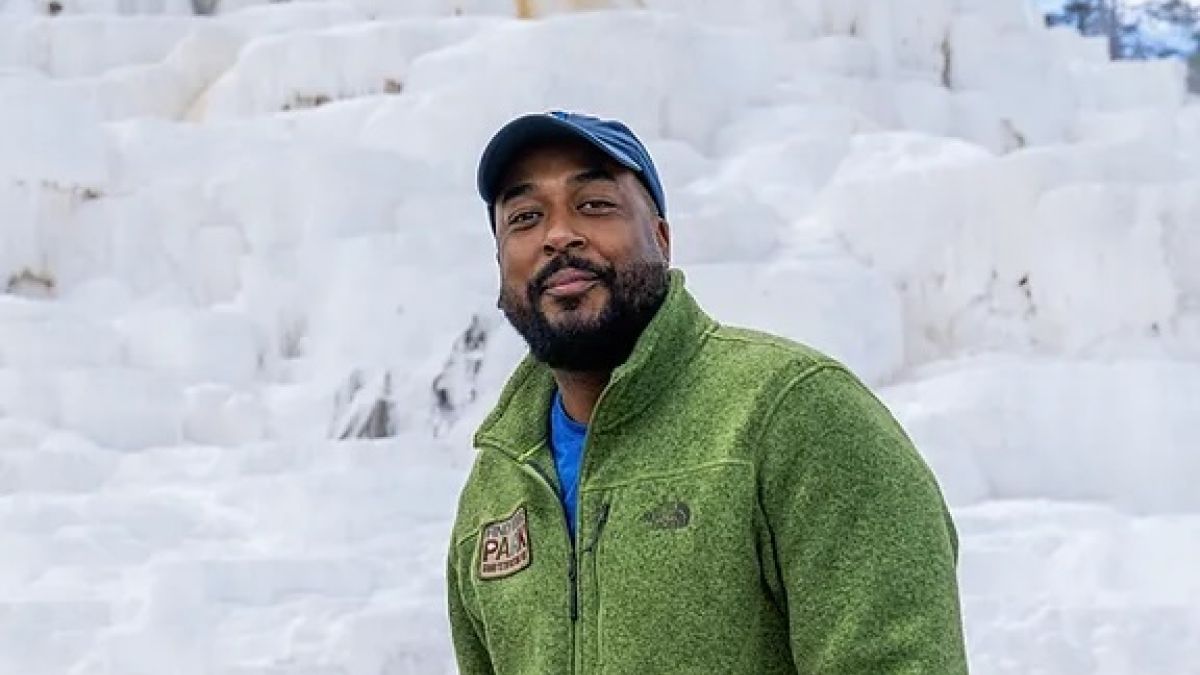January 2025
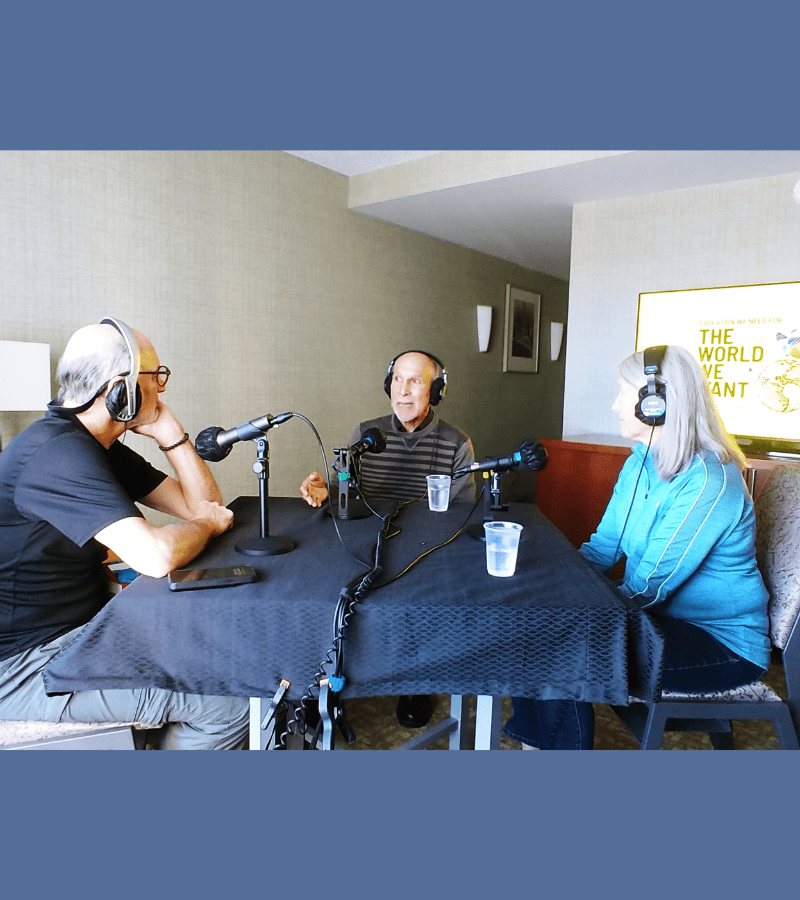
Delve into how environmental education programs have evolved from lessons of awareness to calls to action. Join host Gerry Ellis in this thought-provoking conversation with Kathy McGlauflin and Gus Medina, examining how these shifts, along with the changes in methods and technology, have shaped the field and what it means for connecting people to nature in a modern world.
From unlearning our assumptions about where young learners find and thrive in nature to reshaping the tools we provide educators as they enter the field, this discussion unpacks what it takes to create meaningful change in how we teach about the world around us. They reflect on programs designed to move beyond basic awareness to foster active participation in conservation efforts. Kathy and Gus emphasize the need for curriculum integration and everyday application to make environmental education a lived experience rather than a one-time event.
In this episode, Kathy McGlauflin shares compelling stories about the transformative impact of training educators to incorporate environmental education into their classrooms. Gus Medina delves into the challenges of engaging teachers, from crowded curricula to resource limitations, and highlights strategies like pre-service training and district-level support. Discover how these initiatives inspire teachers to integrate environmental awareness into core subjects and empower students to take meaningful action.
"It has to be a collaborative effort, because if educators don't have a buy-in into that program from the very beginning, when funding cuts come, when you lose staff, when you lose a particular teacher who is really enthusiastic, the program disappears.
So if you don't fill that institutional foundation for these programs, the work is short term and you're basically constantly starting over. And that's a reality."
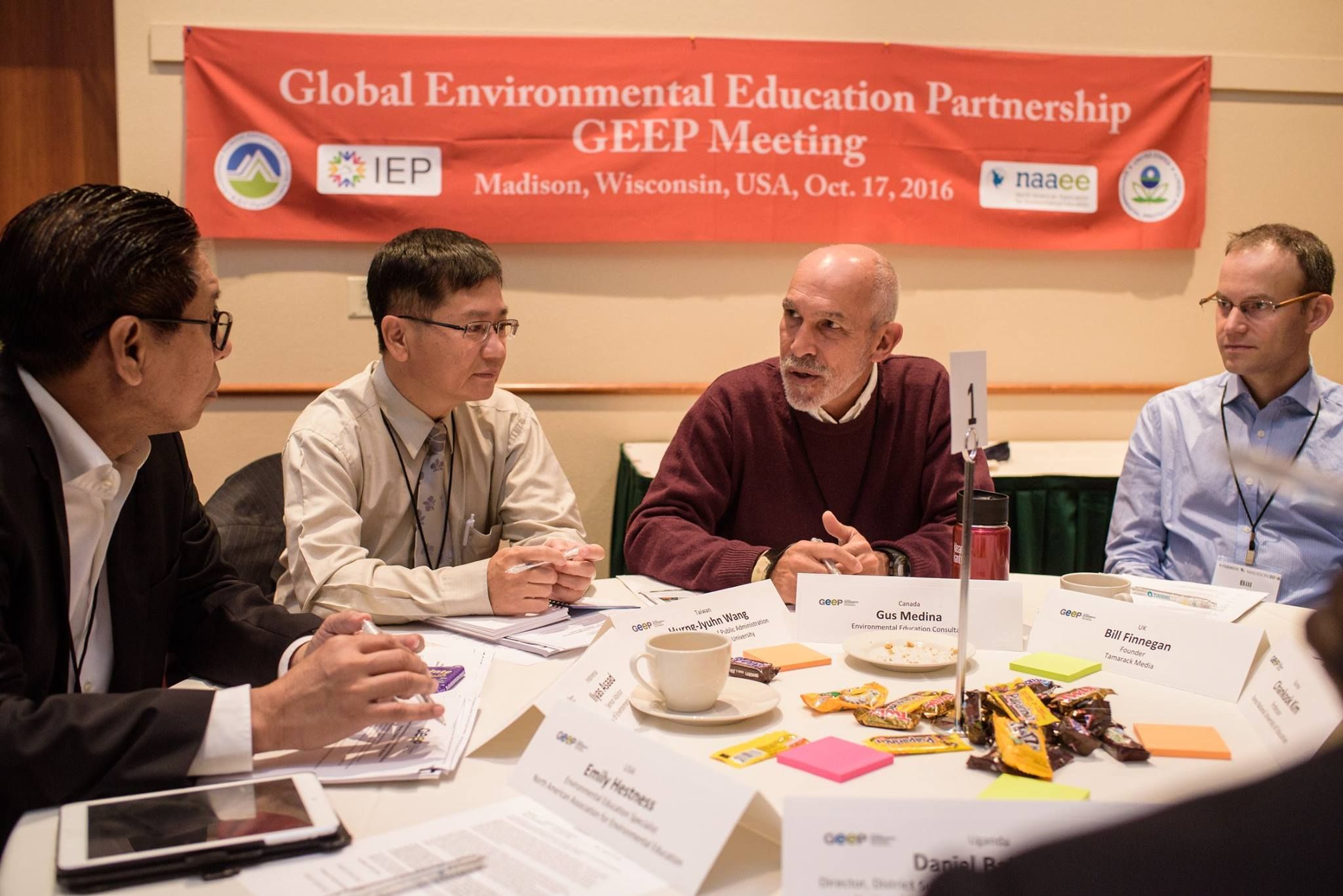
Kathy and Gus discuss strategies to embed environmental awareness across grade levels and curricula, ensuring it becomes a lifelong thread in education. They share the importance of pre-service teacher training, professional development, and building institutional support to create lasting change.
"We always felt that professional development had to be a part of this. It's not the only answer, but it's certainly an important part to reach the educators who are in turn reaching the students."
Enthusiasm can create true change when educators, administrators, and communities work together. Thoughtful development of materials, trainings, and implementation are key to achieving effective programming.
“How can we get that educator to connect with his or her students to better understand the world around them, their place within it, and their responsibility for it?
Environmental education wasn't a separate subject area to be fit into a very crowded school week … we always said it had to help them do what they already are supposed to be doing."
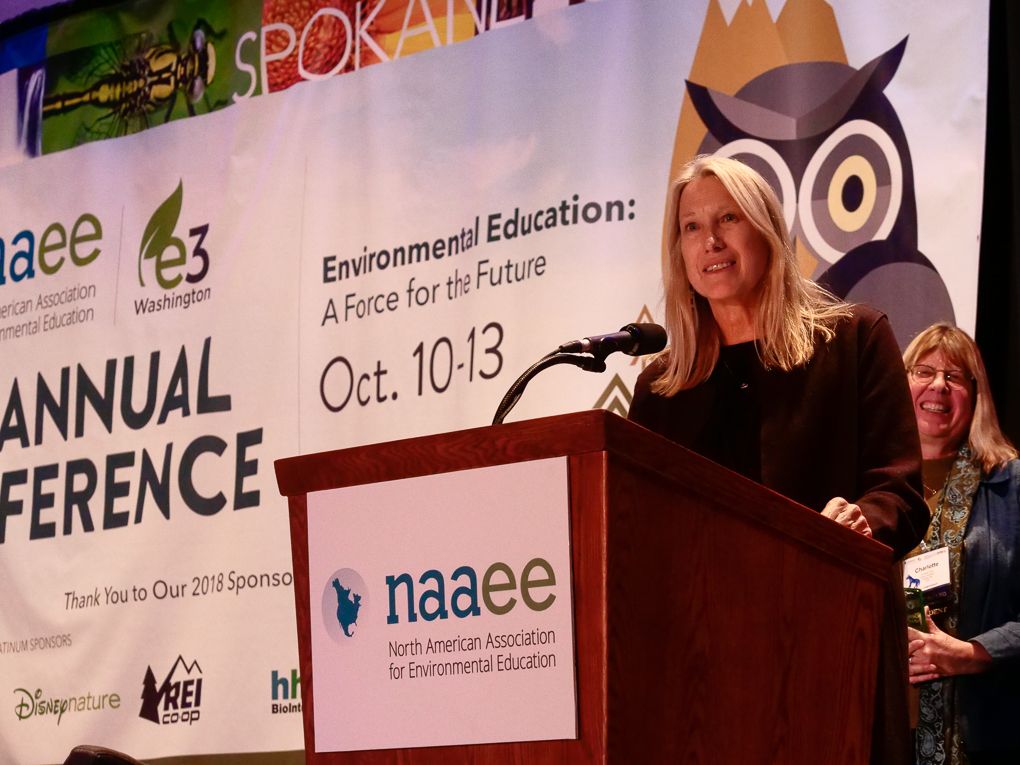
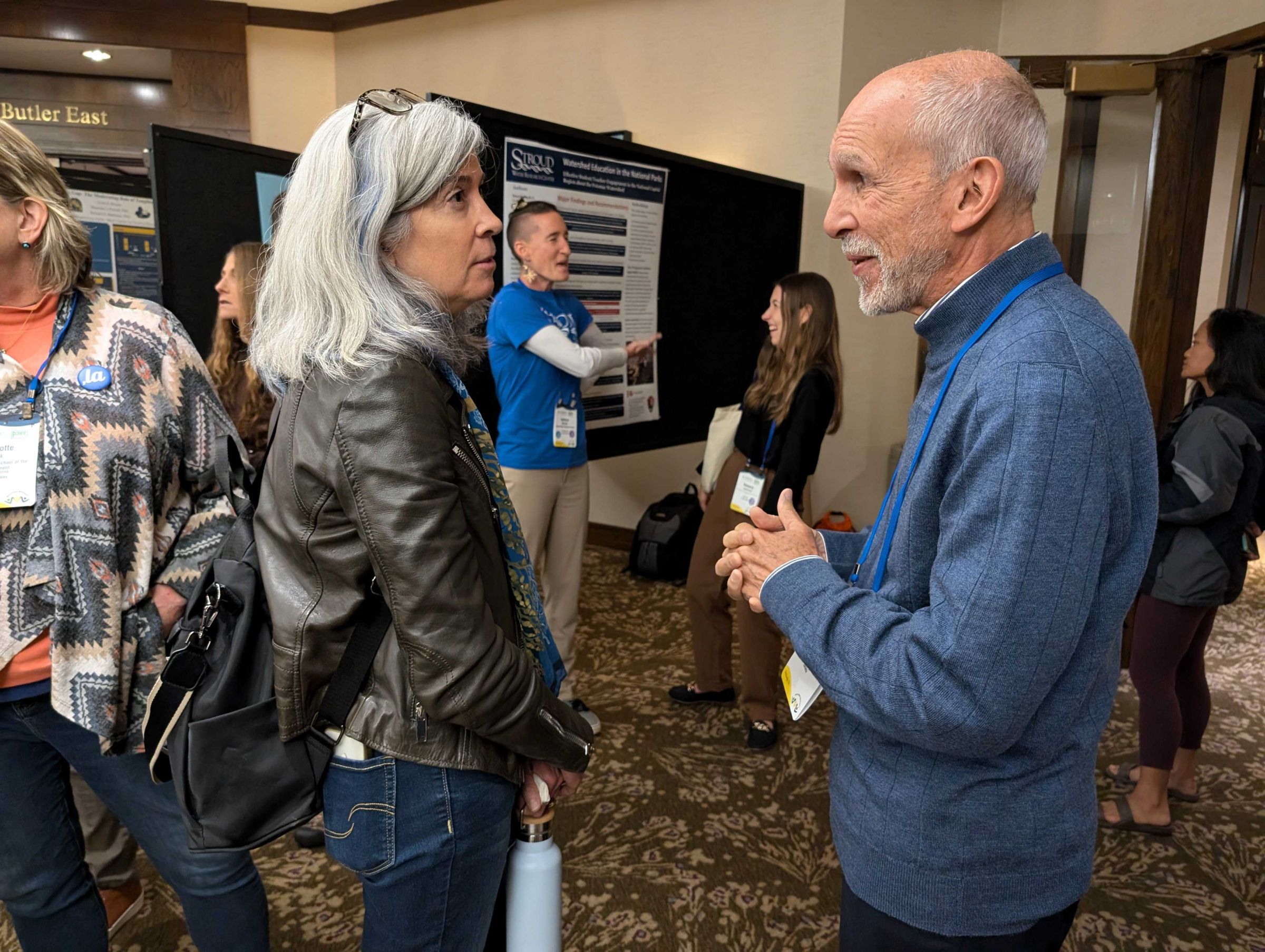
"I really believe that environmental education is the answer.
I have often said to educators, 'Environmental education is just good education."
Additional Resources for Educators
- Find environmental education resources ranging from classroom materials, publications, program evaluation tools, podcasts and media, and interactive websites on the eePRO Resources webpage.
- eePRO's Learning posts offer ongoing professional development opportunities for K–12, pre-service, and nonformal educators.
- Sample of interdisciplinary environmental education resources:
- Climate Literacy and Energy Awareness Network provides resources for elementary grade levels.
- CAMEL is a free, comprehensive, interdisciplinary, multimedia resource for educators, providing over 300 interdisciplinary topic areas and numerous resource types to give educators the tools they need to teach about the planet.
- Climate Generation offers a six-lesson interdisciplinary middle school curriculum that uses NGSS as a framework.
- PRO Picks provide resources and materials selected by experts in 15 different topics of environmental education.
- Join an eePRO group that speaks to your interests and specialties and find an online community of others who care about the same issues
Have a favorite lesson or resource that assists your programming? Please share in the comments and add your suggestion to eePRO.
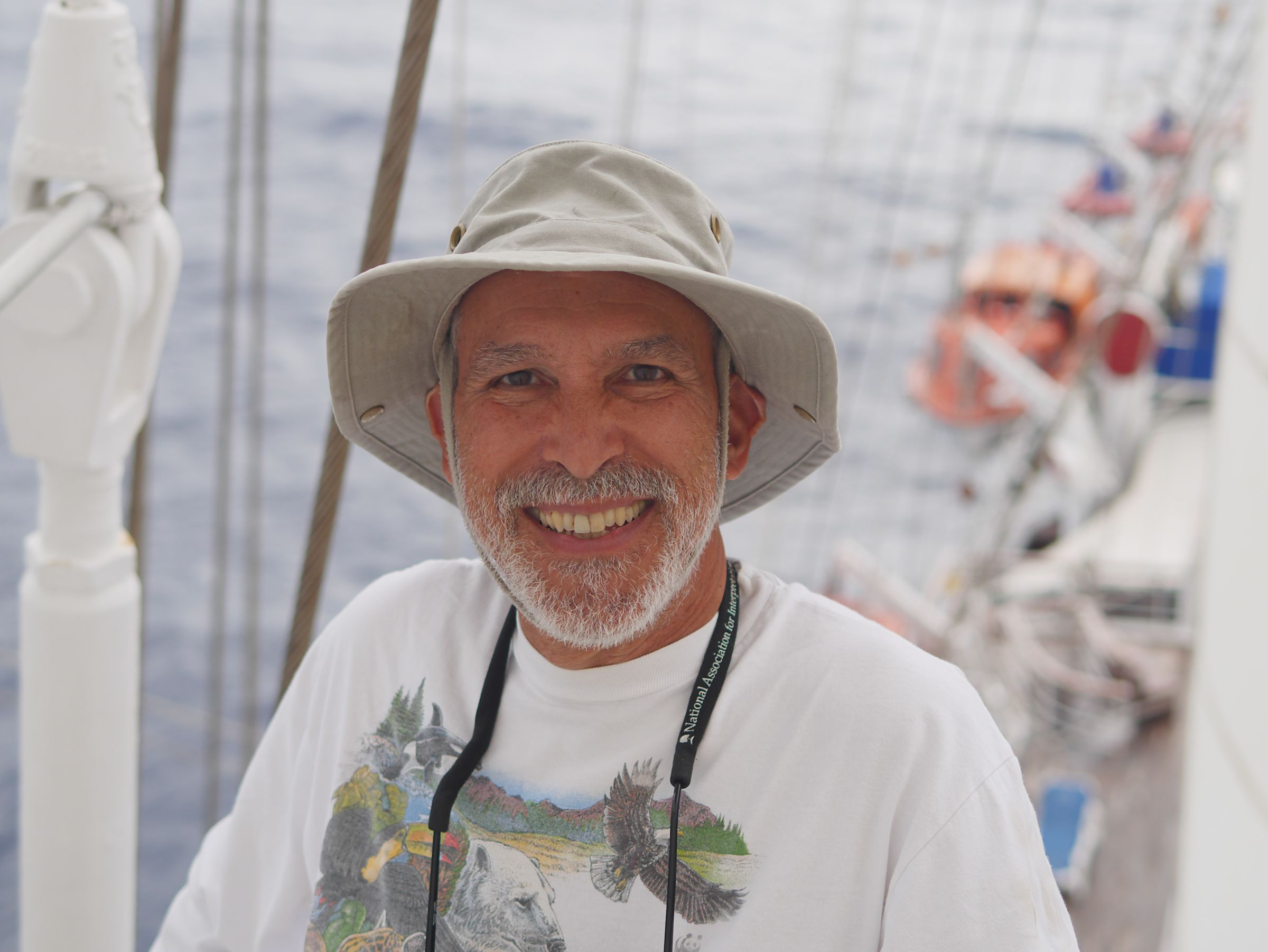
About the Guest Speaker: Dr. Gus Medina
Dr. Augosto "Gus" Medina is an environmental education consultant. His areas of work include professional development, program design, cultural competency, strategic planning, facilitation, and project management. Dr. Medina has helped to write several funding proposals and reviewed numerous requests for funding. He is on the Board of Directors of Environmental Education and Conservation Global, a U.S. based organization that uses the power of education to help create a global population that ensures the equitable and sustainable use of our planet’s natural resources.
Dr. Medina has worked both nationally and internationally. For 18-years he served as Project Manager of the U.S. EPA National Environmental Education Training Program. Prior to that, Dr. Medina spent 11 years as a program officer with World Wildlife Fund (WWF-US and WWF Canada). In that capacity, he worked with numerous government and private conservation groups throughout Latin America and the Caribbean to design and implement conservation, sustainable use, and environmental education projects. Dr. Medina has played a leadership role in making environmental education more culturally relevant, serving on task forces and as a course instructor. Additionally, he served as project leader for the publication, What's Fair Got To Do With It: Diversity Cases from Environmental Educators. Dr. Medina helped to design and facilitated workshops that use cases from this book to promote discussion on how to make environmental education organizations and programs more inclusive.
About the Guest Speaker: Kathy McGlauflin
Kathy McGlauflin has served as the National Director for Project Learning Tree and Senior Vice President of Education for the American Forest Foundation since 1985. She was responsible for all the materials development and professional development implementation, as well as supporting the network of PLT state leaders. She is past president and a former board member of NAAEE. She served on a number of boards, including World Wildlife Fund’s Windows on the Wild national advisory board and the National Association of Conservation Districts’ Education Board. She also served on the National Science Teachers’ Association Task Force on Environmental Education and the Council for Environmental Education advisory board.
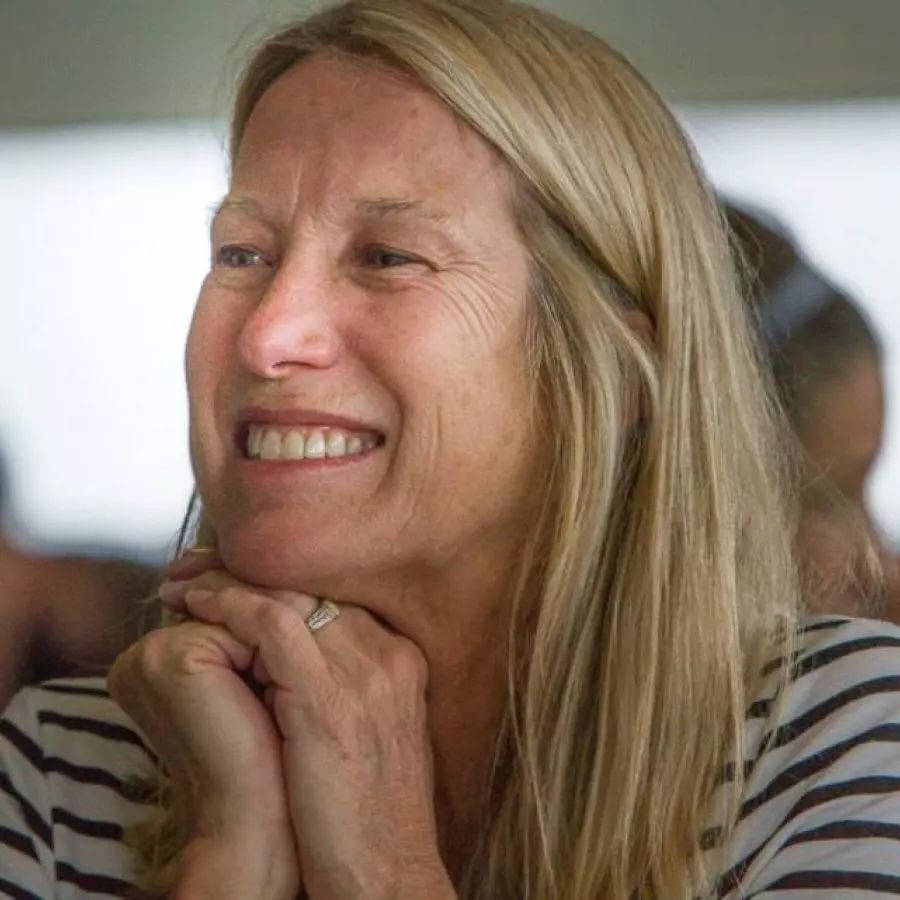
Kathy began her career as an urban naturalist at the Schlitz Audubon Center in Milwaukee, later directed youth programs for the National Audubon Society, and worked as education coordinator for the National Wildlife Federation. Kathy has received several awards, including the Walter E. Jeske Lifetime Achievement Award for Environmental Education and the Rudolph J. H. Schafer Award from the Western Regional Environmental Education Council for her work with Project Learning Tree and her dedication to environmental education. She is a frequent speaker and advisor on environmental education issues, including international keynotes. She is also co-author of Living Lightly in the City, an urban environmental education curriculum.
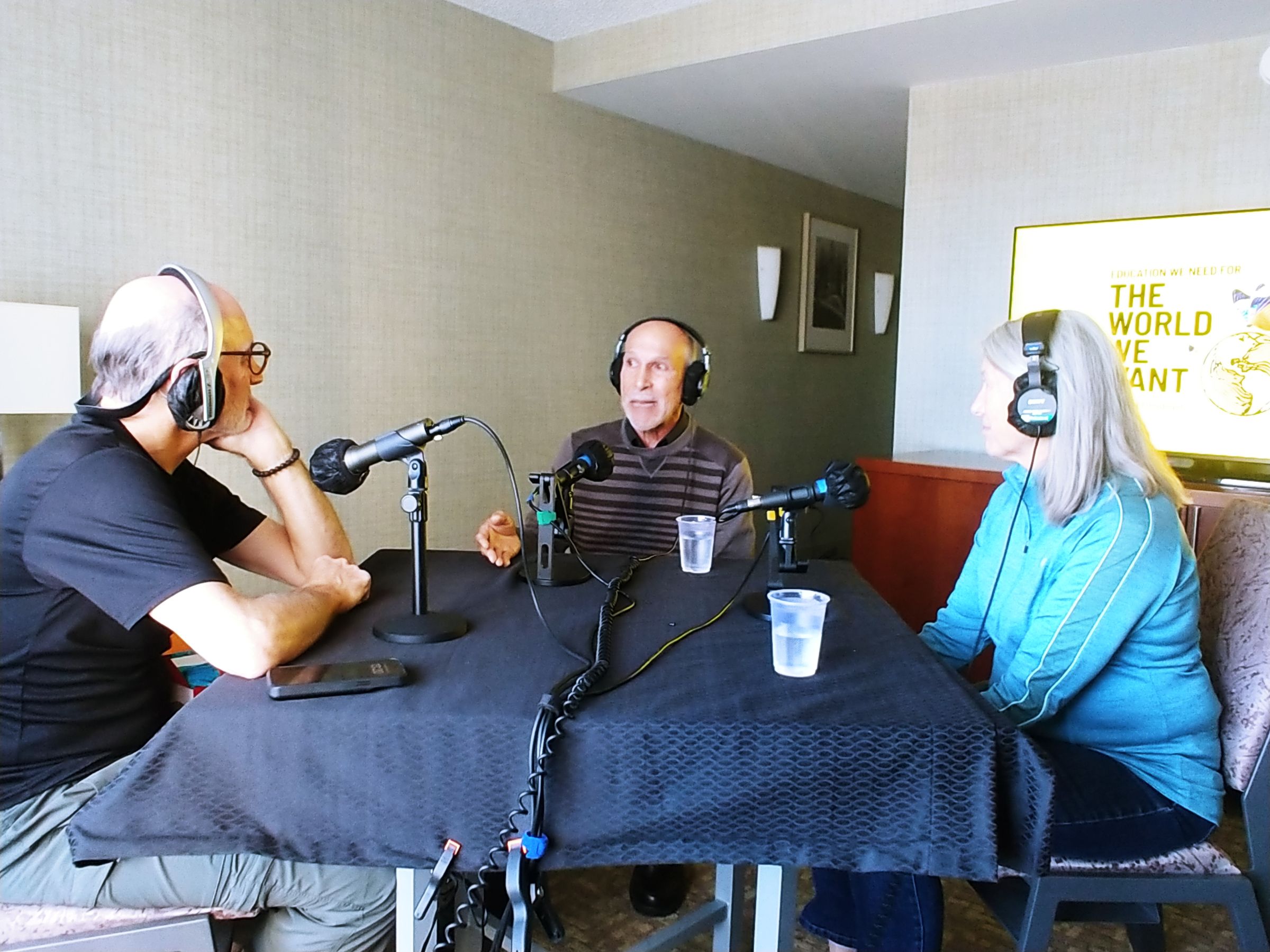
Transcript
00;00;00;00 - 00;00;48;07
Carrie Albright, NAAEE
Thanks for tuning in to The World We Want: The NAAEE Podcast, a project of the North American Association for Environmental Education. If these episodes resonate with you after the podcast, check out our website, which contains opportunities for professional development, resources for educators and administrators, and guidance on how you can incorporate environmental education into a broader teaching strategy. Visit us at N double A double E dot org slash podcast and thanks for listening.
00;00;48;08 - 00;01;11;08
Gerry Ellis, Host
Welcome to The World We Want: The NAAEE Podcast. Hi. I'm your host, Gerry Ellis. So what is the world you want? I'd like to see a world where you look at environmental education as something found in all aspects of learning, where it is more than a separate nature, education, experience, but instead woven into the fabric of our daily lives.
00;01;11;09 - 00;01;25;14
Gerry Ellis, Host
Where are the lines between environmental education and good education disappear? That, in turn, means giving innovation and experience to the space to nurture the future of environmental education for both teachers and for learners.
00;01;25;17 - 00;01;37;11
Gus Medina
I think part of what we're trying to do as well is create, you know, people that think outwardly, look for creative solutions. And we need we need lots of creative solutions.
00;01;37;12 - 00;01;44;11
Kathy McGlauflin
And I've seen the magic of that in professional development experiences. Teachers say this is going to change my teaching.
00;01;44;13 - 00;02;24;17
Gerry Ellis, Host
On this episode of The World We Want, we tap into over four decades of environmental education wisdom experience, from formal learning spaces to the natural classroom. Both of our guests have a lifetime dedicated to supporting environmental educators, creating the tools to improve teaching methods, and ensuring that the field is culturally relevant and inclusive. Kathy McLaughlin has served as National Director at Project Learning Tree and Senior Vice President of Education at the American Forest Foundation, where she created hands on materials for teachers, develop professional training for educators, and pioneered urban environmental education curriculum.
00;02;24;20 - 00;03;00;24
Gerry Ellis, Host
Dr. Gus Medina is an independent consultant specializing in environmental education both nationally and internationally. He led the U.S. EPA National Environmental Education Training Program and has served over a decade at World Wildlife Fund, supporting conservation and environmental education across Latin America and the Caribbean. Both are past presidents and former board members of our very own NAAEE, and both have played integral roles in creating professional development programs and implementing these works in the real world with educators and administrators.
00;03;00;26 - 00;03;22;21
Gerry Ellis, Host
Needless to say, their dedication to improving how we teach and learn about our relationship with the natural world gives them more than a few things to talk about today on the World We Want podcast, we draw on the experience and insights of great thinkers, creators, educators, and conservationists, as well as some of the newest voices driving change around the world.
00;03;22;23 - 00;03;50;11
Gerry Ellis, Host
And what do they share in common? Environmental education. One of our most powerful tools for creating a more just and sustainable world. It inspires. It enlightens, it influences attitudes, and most importantly, it drives us to become better guardians of this planet. And now I'm delighted to welcome to the World We Want, Kathy McLoughlin and Gus Medina. Kathy. Gus, welcome to the World We Want.
00;03;50;13 - 00;04;14;05
Gerry Ellis, Host
I am so excited to have you both here. You know, this podcast has covered environmental education and education in general from so many directions. We have been touching on all the changes that are taking place and are taking place right now. So I can't think of anyone who could offer us greater perspective and insight than the pair of you.
00;04;14;07 - 00;04;19;15
Gerry Ellis, Host
I think of it as like the clothing you wear. It is who you are. It's the smiles you wear. Welcome.
00;04;19;17 - 00;04;25;20
Kathy McGlauflin
Thank you. And I'm excited to be with Gus doing this. We have wonderful history together.
00;04;25;22 - 00;04;46;18
Gus Medina
I started out kissing, but, well, Kathy and I were working on a conference together, and, fundraising is always an issue. So at one of the plenary sessions, I don't know who came up with the idea that, you know, we would offer kisses to the audience for $0.25.
00;04;46;19 - 00;04;47;27
Kathy McGlauflin
No, it was more than that.
00;04;47;27 - 00;04;51;17
Gus Medina
I hope so, because that sounds awfully cheap now. [Laughing]
00;04;51;20 - 00;04;54;15
Kathy McGlauflin
I think it was a dollar.
00;04;54;18 - 00;04;55;12
Gus Medina
Right.
00;04;55;15 - 00;05;08;22
Gerry Ellis, Host
I hope it Kathy isn't that cheap. [Laughing] If she is, there will be a booth right after this podcast which we’ll. But that's how it started. Yes.
00;05;08;25 - 00;05;12;03
Gus Medina
Well, we knew each other a little bit before. Oh, yeah. Yeah. Yeah.
00;05;12;06 - 00;05;22;21
Kathy McGlauflin
Right. So they could either buy a kiss from Gus or buy a kiss from me. And we ran around and collected money and gave kisses.
00;05;22;23 - 00;05;24;12
Gerry Ellis, Host
It was fun.
00;05;24;14 - 00;05;40;08
Gus Medina
I don't know how much money we raised. I don't think I ever heard. But anyway, it was fun. I think the audience enjoyed it. And, you know, it's one of those things that just kind of lowers the pressure level and people have fun and enjoy it. So it was good that way.
00;05;40;11 - 00;06;07;06
Gerry Ellis, Host
The beauty of what you too can offer us in this conversation, I think, is you have a perspective on not just environmental education, but developing programs for environmental educators. Seeing those programs grow, change, evolve over time because we're talking, you know, probably 30 or 40 years in, in both of your cases. And sometimes it can seem like nothing's changed.
00;06;07;13 - 00;06;33;12
Gerry Ellis, Host
Like we're fighting these fights new. So how have you seen it evolve over this time? Both from, people getting involved in it, but also from the programs that both of you built. And we'll talk. I'd like to talk about those programs, though, how those programs have evolved and built and the impact that they've had and the challenges that they've had.
00;06;33;14 - 00;07;02;15
Kathy McGlauflin
I think that, what I've seen is and Gus and I have chatted about this, you know, this sort of movement from what was to what is. And we have often in our field talked about, the nature study movement that took place on the turn of the century and how engaged people became with that and getting outdoors and the whole national parks movement to conservation education, and where a lot of the federal agencies got involved.
00;07;02;17 - 00;07;28;05
Kathy McGlauflin
We've seen the big movements grow together and change and evolve. And then today we hear about more interest in sort of a, reimagining environmental education and how it can change the world with getting folks to better connect to nature. So it's kind of like it's coming back around in some respects.
00;07;28;07 - 00;08;01;15
Gus Medina
I would even take it a little bit further back because of, you know, if you look at settlement houses in urban areas and early 19th century where, social service people were looking at urban kids and they were already appreciating the need to take kids outdoors. And so that's one of the earliest routes. And then you've got the soil conservation movements or water conservation movements that took place during the drought in the in the West during the 30s, was in the 1930s.
00;08;01;18 - 00;08;29;29
Gus Medina
And that whole sort of conservation mentality, which developed there and evolved into things like conservation education, outdoor education, which are all elements of field, from which environmental education is an outgrowth. And then since then, there have been all these other kind of shoots that have been coming off of sustainable development, education, education for sustainable development.
00;08;30;05 - 00;08;32;07
Kathy McGlauflin
Climate change education.
00;08;32;09 - 00;08;59;19
Gus Medina
Energy, education. But I think fundamentally, many of these, I think the fundamental changes that I see, although I would say with conservation, with soil conservation, for example, there was always an action component to that because it was mostly working with farmers trying to keep the soil on the fields, and there were certain things that they could do to actually reduce soil loss.
00;08;59;21 - 00;09;33;21
Gus Medina
So there's been an element of conservation there for a long time. The nature study movement for a long time was just kind of getting out and appreciating nature, and there wasn't really an action component to that. And I think even though environmental education really stressed, I think from the very beginning that we needed to take action. It was very difficult to get to that place for a whole variety of reasons, but it was often the thing that got left off because.
00;09;33;24 - 00;09;56;28
Kathy McGlauflin
We started with the awareness, you know, a lot of programs began and ended with getting kids outdoors to enjoy nature and, learn about the environment, but didn't take that next step. I think that's where some of the programs that Gus and I worked on did attempt to take that next step awareness to knowledge to action.
00;09;57;01 - 00;10;19;09
Gerry Ellis, Host
It’s interesting because regardless of the age of the person we've talked to or the program they're involved in. That disconnect to nature keeps coming back and then reconnecting that what you're looking at, you know, sort of a long view of it. Why is it we lost that connection and then now we have to find it back?
00;10;19;11 - 00;10;52;18
Gus Medina
That's a good question. I mean, I'm just theorizing here, but I think, you know, we have evolved as a society where we tend to be more and more disconnected from nature because of the creature comforts that we have now. You know, we live in buildings, we live in cities that often don't have much vegetation in them. We spend a lot of time on screens, looking, maybe looking at nature, but not being in nature.
00;10;52;20 - 00;11;16;18
Gus Medina
So I think that disconnect has evolved over time. And, I mean, if we go even further back, I mean, nature was often a scary thing, in terms of having to deal with the environment, either, you know, snakes or insects or, you know, droughts and floods. So I think as humans, we always have that kind of a little bit of that love hate relationship.
00;11;16;19 - 00;11;43;01
Gus Medina
Maybe Indigenous Native Americans had a better perspective on that, where they could they seem to be able to, you know, accept that reality and feel more like a part of it. But they were always very much on the land. They were connected to the land. So I think just the whole way we have started or the way we lived has evolved, has made that disconnection.
00;11;43;02 - 00;12;03;24
Gus Medina
And unless you're a special person to make that effort to get out there, and whether it's birding or hiking in the woods or just taking a walk around the neighborhood, it's very easy to forget that's there. And there are lots of things that are that look like, you know, the therapy that nature gives you, but it's not really providing that therapy.
00;12;03;24 - 00;12;06;14
Gus Medina
It's masking it, I guess.
00;12;06;17 - 00;12;32;27
Gerry Ellis, Host
Yeah, there is, especially in the digital age, I think there's an illusion of connection that we embrace. But it may not be there. Just seeing the visuals while they're impactful, you don't smell it. You don't hear it. You don't feel the change in the air or the humidity. Yeah. You don't. There's no sense of place to it.
00;12;33;00 - 00;12;38;28
Gerry Ellis, Host
You don't watch a Netflix film about, you know, some animal and feel that place.
00;12;39;01 - 00;13;15;18
Kathy McGlauflin
I think, too, as an educator. Working with teachers and students and you know what works in a classroom. And it isn't always just getting outside. You know, a lot happens inside as well. And so I think, some of the work that I've done and Gus has done and many of us have done have made those connections to the classroom, how can we get that educator to connect with his or her students to better understand the world around them, their place within it, and they're responsible for it.
00;13;15;20 - 00;13;39;21
Kathy McGlauflin
And sometimes that means not just going out like the, you know, a green schoolyard, but it's also understanding how energy works. How do we create energy? How do we manage for energy? What do we do with resource management? How do we handle these things that aren't just nature? You know, that environmental education is about all of it. It's not just nature.
00;13;39;23 - 00;14;04;07
Kathy McGlauflin
One of the things that I learned early on was that there's a lot of students out there, and if we think we can reach them by going in and doing an hour long program in a classroom, we'll never get there. And so that's why we have to go up a level and work with the teachers, so that—I think there's value in having outside experts come in and do presentations.
00;14;04;10 - 00;14;29;18
Kathy McGlauflin
But if that's what you're limiting your program to, you're limited it to that one hour that those kids see that person. And often the teacher does leave the room. It's not unusual. So we always felt that professional development had to be a part of this. It's not the only answer, but it's certainly an important part to reach the educators who are in turn reaching the students.
00;14;29;20 - 00;14;52;26
Kathy McGlauflin
I've had lots of discussions over the years about,” well, we go direct to the kids and we give them our message.” And I'm like, well, that's great. You know, that's good for you. And there is a place for that. But it can't be either or, you know, and I think we've seen the challenges. How do you then get the teachers to participate in that professional development experience?
00;14;52;28 - 00;15;15;06
Kathy McGlauflin
I'm working on a project with superintendents, for example, and we're trying to get how do we go top down so that superintendents make it good and easy, and the appropriate and the right thing for their faculty to engage in environmental education. How do we get them to say, this is something we want in our in our district, in our schools. As well
00;15;15;06 - 00;15;45;25
Kathy McGlauflin
you have to go to the classroom teacher and say, this is, you know, some great, great stuff that will help make your teaching better and your kids excited about learning and so, you know, both both ends. And then you get the teachers to come to professional development experiences. We also think at the teacher training level, someone mentioned that in a talk today about the importance of pre-service education, getting those people who are training to become teachers, to have that embedded in their teaching.
00;15;45;25 - 00;16;06;09
Kathy McGlauflin
And that's a tough one to get to. We have progress. We have a lot of folks, for example, here at the conference who are doing that, but they're a piece of what's the teacher training programs across the country. So that's another way to get at them at the beginning. So it's becomes part of who they are as a as a new teacher.
00;16;06;11 - 00;16;33;07
Gus Medina
And, you know, I think I would just kind of echo what Kathy said because that pre-service training is really essential. And a lot of teachers, I mean, well, the reality is that pre-service training is great, but you really don't learn to become a teacher until you're actually in the classroom and you're faced with the reality of 20 to 30 kids, and you're responsible for those kids for, what, six hours a day?
00;16;33;07 - 00;16;56;28
Gus Medina
Five hours a day? Very few people could really handle that. It's a challenge. And, you know, you've got 20 to 25, 30 different personalities in that room, and you have a basically a set curriculum that you're supposed to follow. And these kids are supposed to know X, Y, and Z by the time they leave your classroom.
00;16;57;01 - 00;17;26;20
Gus Medina
And those curriculums are pretty jammed full. Everybody's trying to get in on it. So teachers have to pick and choose. They have to be focused on how do I get my children to learn these primary concepts. And if you know your programs are sort of coming out from left field and not somehow connected with what that educator has to do in the classroom, achieve in the classroom, you're not going to make much progress.
00;17;26;22 - 00;17;52;15
Kathy McGlauflin
But we always said it had to help them do what they already are supposed to be doing. So it wasn't a separate subject area to be fit in to a very crowded school week. That it was integrated in, made a part of what they're already supposed to be doing in and the hope, of course, was that it was maybe, perhaps a better way of teaching the kinds of things that they had to teach and a better way to engage their students.
00;17;52;17 - 00;18;15;22
Gus Medina
And you need special skills. I mean, there's always an emphasis on taking kids outdoors, learners outdoors. But, you know, you need a whole other set of skills in terms of managing groups. It's very different managing a group of 25, 30 kids in a classroom versus being out in a forest. And how do you do that safely and efficiently and effectively?
00;18;15;22 - 00;18;19;05
Gus Medina
So one, you don't lose any students.
00;18;19;07 - 00;18;21;20
Kathy McGlauflin
I’ve only done that once.
00;18;21;22 - 00;18;48;28
Gus Medina
Two, they actually are able to tie that back. Because again, we don't want these one time experiences. If it doesn't fit into the curriculum, if it doesn't fit into what the teacher is going to be normally, that he or she had to achieve, then it becomes a one time of experience. If it really helps further the curriculum, then it gets reinforced in the classroom and that's what you really want and that takes a lot more time.
00;18;48;28 - 00;19;12;23
Gus Medina
Too many times programs are kind of developed independently of teachers, and they're just kind of dropping programs. And again, there might be a nice for one classroom session, but then it's gone. So I mean, the more I think the more effective programs really work with teachers and superintendents and principals. What do you need? How can we make that happen?
00;19;12;29 - 00;19;38;27
Gus Medina
And it has to be a collaborative effort, because if they don't have a buy in into that program from the very beginning, it's, you know, it, you know, when funding cuts come, when you lose staff, when you lose, a particular teacher is really enthusiastic. The program disappears. So if you don't fill that institutional foundation for these programs, the work is short term and you're basically constantly starting over.
00;19;39;01 - 00;19;43;01
Gus Medina
And that's a reality.
00;19;43;03 - 00;20;00;25
Gerry Ellis, Host
I feel like what you're saying is we need to back up and back up and back up a little bit, like we need to get, okay. If we need to get these teachers in the very early stages learning how to incorporate this in, then we need to get the people who are teaching them to teach them how to incorporate this in.
00;20;00;27 - 00;20;22;18
Gerry Ellis, Host
And then we have to back up again. And the people who are overseeing them and keeping their professorships or whatever going, they need to understand the value of this. So it this it's like we're backing up, backing up. I hear that little beep beep beep sound from machines go. It's like going and going and going and going. Yeah.
00;20;22;20 - 00;20;43;14
Kathy McGlauflin
But I don't discount the value of going direct to an existing classroom teacher, perhaps one that's been in the classroom for 10 to 15 years and providing them some tools that they weren't made aware of before. I mean, I've seen the magic of that in professional development experience. This teacher say this is going to change my teaching.
00;20;43;17 - 00;20;54;13
Kathy McGlauflin
You know, that they see the value and in this other way of teaching and learning. So it doesn't it works at the beginning, but it also works, you know, midstream too.
00;20;54;15 - 00;21;16;17
Gus Medina
And part of the issue, too, is how teachers are taught how pre-service is done. And it's often a lecturer approach. You have to learn x, y and Z, and you have to pass examinations. And then schools are making the same requirements on them with their students. So it's really tied up in an entire system of how we teach and what are we teaching for.
00;21;16;20 - 00;21;54;19
Gus Medina
And if we're not looking seriously at then in terms of, all right, what kinds of citizens of the future need, what kinds of skills do they need? What kind of sort of, you know, intellectual curiosity, decision making? You know, our society is changing. That's all part of it in terms of, you know, we're not future thinking enough and we're still, you know, schools are often several years behind in terms of what that student is going to be, have to be able to know and do when they get out of school.
00;21;54;21 - 00;22;36;21
Gerry Ellis, Host
That seems like something that environmental education could bring to, you know, formal education is that environmental educators seem to be much more in tune with listening to what the needs are of the kids they're working with, the groups they're working with. I mean, you know, Jaime Gonzalez , we’ve had and he started this podcast off, actually, was the first podcast we did and talking about engaging, you know, BIPOC cultural groups, inner city with nature and really listening to who they were as people and culture and what they needed and how they connected to things culturally.
00;22;36;23 - 00;22;49;17
Gerry Ellis, Host
And it seems like that's a really powerful lesson that environmental education could teach. The formal education system is listening, and it's something we've heard over and over and over through this podcast: listening, listening, listening.
00;22;49;18 - 00;23;17;15
Kathy McGlauflin
And not just formal education, but we also work in the nonformal settings or informal. It depends on which language you want to use. But really the same is true in that world. You know, the folks who work at nature centers and zoos and aquariums and museums, and they're reaching formal. They're—it's always confusing because they're nonformal educators reaching formal students, you know, are coming into their sites.
00;23;17;15 - 00;23;43;17
Kathy McGlauflin
It's a funny thing. And they have to make their programs connect with what has to happen back in the classroom, too. So we need to work with and we do work with those leaders as well, you know, to make sure they are listening to their communities and what are the needs in their community? What are the schools in their community need and want for programs and projects and activities that their facilities offer?
00;23;43;19 - 00;24;05;00
Gus Medina
You know, I think the field has changed a lot in terms of—we had a lot of preconceived notions about what environmental education, well, not what environmental education is, but what is appreciation of the environment and being engaged with the environment. So, you know, I grew up in New York City and, you know, taking kids out into nature.
00;24;05;07 - 00;24;29;04
Gus Medina
Their idea was taking the kids up 30 miles up the river, the Hudson River, and spending some time in a residential camp or visiting a park. But that was like a one time experience. The rest of the year there in this urban area. And you know what I did my doctoral dissertation, my theme was, what's the difference between an environmental educator?
00;24;29;04 - 00;25;01;17
Gus Medina
How do environmental educators and urban children, how are their perspectives similar or different or the same? And I found out, you know, I showed them pictures of natural areas and kind of intermediate areas and urban areas. The kids really liked the urban areas. The environmental educators really liked the natural wild areas. And then looked a little bit closer.
00;25;01;19 - 00;25;23;06
Gus Medina
Why is this? We know why the environmental educators like the urban areas, but the urban areas, kids could ride their bikes, they could play ball. There were all kinds of, you know, areas where that could really play. And of course, that's what they were familiar with. They weren't familiar with this. That was another variable. It's just level of familiarity with the environment.
00;25;23;06 - 00;25;52;02
Gus Medina
So kids were very familiar with the urban environment. Environmental educators were very familiar with rural, kind of wild environments. And they were talking, you know, they were they were trying to bring that perspective to these urban children without really appreciating the place where urban children live and what was valuable about the place where they lived. And how they could actually engage in that community to appreciate the nature that was there.
00;25;52;02 - 00;26;23;17
Gus Medina
Because nature is all around us, even in the most urban areas. But their idea was get them out of the city, get them out here. And somehow that was supposed to kind of change their lives. And it didn't. I mean, it was a wonderful experience, but the reality is three days I'm back in my urban environment and I probably won't get back there for years, if not decades.
00;26;23;19 - 00;26;51;05
Carrie Albright, NAAEE
Hi everyone. I'm Carrie Albright from NAAEE. That was our host, Gerry Ellis, speaking with Kathy McLaughlin and Gus Medina about the exciting growth and evolution of environmental education over the years. It's the themes that Kathy and Gus are sharing resonate with you, find some great examples of practical materials and resources used by educators in the field and in the classroom by visiting naaee.org/podcast.
00;26;51;07 - 00;27;18;16
Carrie Albright, NAAEE
That's naaee.org/podcast. We'd love for you to connect with us on social media at the NAAEE or send your thoughts by email at podcast at naaee dot org. And now back to our conversation with Gus and Kathy, sharing insights from a lifetime spent building out the future of environmental education.
00;27;18;18 - 00;27;25;01
Gerry Ellis, Host
It seems like so much of environmental education. It's like these punctuation marks.
00;27;25;03 - 00;27;52;00
Kathy McGlauflin
Well, that's why I just really strongly believe in the idea that it's not a one time thing, but an educator is integrated across the curriculum, across the disciplines that it happens every day. It doesn't happen on Friday afternoon. And we have to nurture that feeling. And that helps us, I think bigger about environmental education, that it isn't just nature education.
00;27;52;03 - 00;28;20;05
Kathy McGlauflin
It's all of the above. I said this earlier, you know, learning about the world around me, my place within it, and then my responsibility for it. So that's really critical to me to have that connection with the students said they see this as a part of their life. And, you know, the perfect world, of course, would be that it starts in early childhood and we have great early childhood programs going on across the world.
00;28;20;07 - 00;28;43;13
Kathy McGlauflin
All the way through college experiences and beyond to adult education. You know, we also environmental educators care about adult education. A lot of the work, for example, going on with climate change education is about helping communities understand how they can become resilient by learning about what can they do? What is it? How does it affect me, and what can I do about it?
00;28;38;16 - 00;28;43;15
Kathy McGlauflin
So it's, you know, that's my perfect world.
00;28;43;18 - 00;28;45;05
Gerry Ellis, Host
The world you want it.
00;28;45;08 - 00;28;48;07
Kathy McGlauflin
It's the world I want.
00;28;48;10 - 00;29;15;12
Gus Medina
One of the wonderful things that I think that's happened in the field is we're moving away from the individual trials of the family. So you're seeing a lot more kind of programs focus on families. So, I mean, if your parents are not or whoever your guardians are not engaged with nature, don't feel comfortable in nature, chances are I'm not going to, you know, you're not going to be comfortable with that.
00;29;15;12 - 00;29;49;08
Gus Medina
So, I mean, you can get that exposure in school and help some of most of schooling. Most of education happens outside of schooling, and especially during those early formative years, you know, from basically zero to, you know, 4 or 5 before they start school. That's where the foundation begins. And if kids aren't getting outside at that age, if they're not having positive experiences outside, it's, you know, they start at a deficit in terms of being able to appreciate the environment and engage with it.
00;29;49;10 - 00;30;11;15
Gus Medina
So these early programs that work with, you know, very young children, they're key, I think, in terms of developing that foundation. I've always felt that pre preschool teachers and kindergarten teachers should actually get the most money salary wise, and then it should go down from there. As a kids get older instead of what it is now.
00;30;11;15 - 00;30;20;13
Kathy McGlauflin
I don't know if you've been in a middle school class.
00;30;20;15 - 00;30;59;22
Gerry Ellis, Host
That, you know, it's really interesting that starting at this idea of starting at a deficit, I never thought about it quite that way. And does that change the way that we should think about programs we develop? And if you think about this in those terms that a child is coming into, you know, school, a setting for a school setting, and it's coming in at a deficit, the first thing you need to do is how do we level the playing field, how do we give them information and engagement and experience that helps them level the playing field?
00;30;59;24 - 00;31;18;03
Gerry Ellis, Host
And I know that sounds kind of more lofty, but sometimes it's just like I've picked up a bug in my life, you know, where this kid is. Never picked up a bug or had dirt in their hands, you know? But we used to do stupid things as kids. I mean, I remember my baby brother coming in and this guy's slug slime.
00;31;18;07 - 00;31;24;02
Gerry Ellis, Host
He ate a slug, you know, he came in. There's, like, goo slime all over. My mom's yelling at us, like, what did you do?
00;31;24;02 - 00;31;25;04
Speaker 5
You let him eat a slug.
00;31;25;04 - 00;31;42;12
Gerry Ellis, Host
I don't know, he ate a slug. But there's an experience there, right? Good or bad, there's an experience you learned about a mollusk or behind the, you know, this this invertebrate and I just. I wonder if we if that's something we're not thinking about.
00;31;42;12 - 00;32;08;09
Kathy McGlauflin
Well, I think education does think about that. If you know about the Head Start program, for example, the movement for Head Start was critical to try to give, all students coming into that first classroom an equal footing, because that Head Start program makes these students who otherwise don't have the same benefits that other students have. They get that early start because the other kids have already gotten it.
00;32;08;09 - 00;32;18;28
Kathy McGlauflin
So and I worked a lot with headstart programs to integrate environmental education into those programs as well. Getting them to see a slug, maybe not eat a slug, but.
00;32;19;01 - 00;32;20;24
Speaker 5
To have them.
00;32;20;27 - 00;32;43;09
Kathy McGlauflin
You know, to look at roly polies and the things that are right in there in their classroom. So it's not like we don't know we need to do that. It's just what's the scale of it? And how do we make it scalable so that it's not just isolated pockets that are getting these wonderful, nurturing early experiences, but it's broader than we have a lot of work to do.
00;32;43;12 - 00;33;02;22
Gus Medina
A lot of these early programs spent a lot of time working with kids and actually and, you know, creatures that are in the classroom, they get to handle creatures. They get to, you know, get their hands dirty. And it's a supportive environment. And teachers are there. And other kids who might have positive experiences will show them how to hold the snake and things like that.
00;33;02;28 - 00;33;23;17
Gus Medina
So I think there are ways to overcome that. I don't think it takes a huge amount of effort to bring kids up to a level playing field. Except if they had some kind of traumatic experience in nature where they got bit by a snake or, you know, they got stung by a bee or something that might require a bit more work.
00;33;23;17 - 00;33;27;22
Gus Medina
But most kids, I think, you know, will jump into it.
00;33;27;25 - 00;33;34;12
Kathy McGlauflin
They're open to it because they have that, as Rachel Carson said, a sense of wonder.
00;33;34;14 - 00;34;00;10
Gus Medina
You know? But I think, you know, from an education standpoint, you know, we claim to love children, but we don't really put the money behind that. You know, education is always generally underfunded. It's more of a mass education approach. And the minute you get into mass education, then you have to standardize things. You can't cater to individual needs.
00;34;00;10 - 00;34;11;09
Gus Medina
So are we really supporting education? And then. Well, of course, I don't want to take it there because it's just education can become a very political football, I guess.
00;34;11;09 - 00;34;20;00
Gerry Ellis, Host
I keep reaching out and trying to figure out where is that thing that flips the switch in which we, at least we know, steps in the direction?
00;34;20;07 - 00;34;37;03
Kathy McGlauflin
Well, I'd like to think that many of us are making those steps, but I think we do a lot of good. And I think one of the challenges that those of us who are in this field, when outsiders come in and say, oh, why aren't you doing X, Y, or Z? And it's like, I've been doing this, we're working at it.
00;34;37;03 - 00;35;01;27
Kathy McGlauflin
We're trying our best, you know? And so I just think that a lot of good is happening, and maybe it's how it that I mentioned scale before. So I think what you're getting at is how do we get it to scale. And that takes resources and commitment. And you know, we have 50 states and the District of Columbia just in this country who all operate their own education systems.
00;35;01;29 - 00;35;27;01
Kathy McGlauflin
Often it's a done end, the district level or the county level, not even the state level. So it's a huge management issue. Someone today talked about, I, I'm trying to remember which country it was, where they, it was, Costa Rica where all student they've integrated environmental education across every grade level, across every curriculum. And that's fantastic.
00;35;27;07 - 00;35;30;16
Kathy McGlauflin
We likely wouldn't see that in this country.
00;35;30;19 - 00;35;57;18
Gus Medina
But I think part of what I mean, we're trying to do as well is create, you know, people that think outwardly, look for creative solutions. And we need we need lots of creative solutions. How do we get around this fear of being afraid of the other? How do we, you know, become a society where everybody is included?
00;35;57;20 - 00;36;20;11
Gus Medina
How do we make sure that everybody has enough to eat? I mean, there are all these huge questions. I mean, if we have an inequitable world, an inequitable country, then, you know, the country as a whole isn't really a success in my eyes of, you know, 1% of your population is super rich and 90% are struggling. You've got a real problem.
00;36;20;13 - 00;36;24;13
Gus Medina
There's something wrong with this system, and it will change eventually.
00;36;24;13 - 00;36;34;03
Kathy McGlauflin
And I'm not sure that environmental education is the whole solution to those huge issues and challenges, but it's we certainly can have a piece of it.
00;36;34;10 - 00;36;35;17
Gerry Ellis, Host
I don't know, I think it might
00;36;35;17 - 00;37;08;13
Gerry Ellis, Host
Be a bigger piece. This opens up so many doors. I mean, we call it environmental education. And before we jumped on to, you know, to this podcast, we were talking about language and whether it's nature education or conservation education or environmental education. But whatever we want to call it, it opens up so many doors, starting with the very first one is if you appreciate this thing and you're kind to this thing, that kindness, it's got to seep into other parts of your fiber and your perceptions of the world.
00;37;08;15 - 00;37;12;19
Kathy McGlauflin
I believe that, too. I mean, I'm not,
00;37;13;17 - 00;37;36;01
Kathy McGlauflin
I really believe that environmental education is the answer. I think it's good education. I think I have often said to educators, environmental education is just good education. And that's what we have to be promoting. And it's not just nature. It's not just science. It's not just social studies. It's not just civic education. It's all of the above.
00;37;36;03 - 00;37;58;27
Kathy McGlauflin
And that's what a good educator could. And should do if given the right tools. And support and resources. So, yes, I think environmental education. Well, that's why I've been in this my whole career because I believe in it. You know, I want to make this world a better place. And I see that environmental education has a, it does have a huge role in it.
00;37;58;27 - 00;38;04;15
Kathy McGlauflin
But Gus is talking about a lot of serious big issues.
00;38;04;18 - 00;38;06;16
Gerry Ellis, Host
But they are all under that umbrella.
00;38;06;23 - 00;38;11;17
Gus Medina
And we all live under those circumstances. I mean, the reality is there.
00;38;11;23 - 00;38;12;07
Kathy McGlauflin
No, you're in
00;38;12;11 - 00;38;13;21
Kathy McGlauflin
Canada, you're not here in
00;38;13;21 - 00;38;14;17
Kathy McGlauflin
This country.
00;38;14;22 - 00;38;28;04
Gus Medina
Well, even Canada is still impacted by all this is going on, especially what happens in the United States. They say in Canada, you know, of the United States sneezes, we catch a cold.
00;38;28;06 - 00;38;30;15
Kathy McGlauflin
Sorry.
00;38;30;17 - 00;38;47;21
Gerry Ellis, Host
Yeah. And I'm looking behind the two of you at the World We Want logo on this screen. And it's a round planet. And I've always said, you know, the problem is we haven't figured out that if we look hard enough that way, we see our butts around. [Laughter] We need a little more of that attitude that we can't escape any of this.
00;38;47;24 - 00;38;53;25
Kathy McGlauflin
What did Muir say? You can't pick a flower without touching a star or something. I can't remember that exact quote.
00;38;53;25 - 00;38;57;07
Gus Medina
Einstein has another version of that, but he used the back of his head.
00;38;57;09 - 00;39;30;09
Gerry Ellis, Host
On a more valuable note, you know, the conference brings together hundreds, thousands of people involved in environmental education. And at this year's conference, we saw so many first time attendees, a lot of whom were still in their 20s. What words of wisdom do you both give them about this? What about that journey to they need to understand to be successful that they don't get burnout?
00;39;30;09 - 00;39;44;15
Gerry Ellis, Host
They don't feel it's hopeless, that they see that what they are accomplishing is part of something bigger. And that it is worth all the sacrifice and effort.
00;39;44;22 - 00;40;28;27
Kathy McGlauflin
Wow. I while you were framing that question and I was thinking about the start of my career and what I thought I knew then and what I learned over time. And it's been a remarkable journey. And I would just say that I think for young people that they ought to look at it as a journey of continuous improvement, that things won't be the same as when they started, and they're not going to be the same a year from now, ten years from now, that they need to be resilient and adapt to change and, accept the difficulties that they're going to face with joy because it's part of the journey.
00;40;28;29 - 00;40;53;18
Kathy McGlauflin
I think it's a lot about personal relationships as well, that I think one of the things that's helped me is in all of my work, it's about the people and it's not about me, and it's not about just the materials that I'm trying to share, but it's our relationship and what we have, to share together. And, learn from and with each other.
00;40;53;21 - 00;41;03;13
Kathy McGlauflin
And not that there's top down and bottom up, but that we're all, you know, in this, wonderful world to help make it a better place.
00;41;03;16 - 00;41;33;22
Gus Medina
To than I would and be humble. Learn from the people that you are working with and the audiences who you engage with. They have a lot to offer, and they should be playing a role in developing and giving you direction on what they need. So listen. Listen to the people that you're working with because they have a lot to offer you in terms of what could be a successful program.
00;41;33;25 - 00;41;35;28
Kathy McGlauflin
Do you mean respect your elders?
00;41;36;00 - 00;41;37;21
Gus Medina
Yes.
00;41;37;24 - 00;41;39;21
Kathy McGlauflin
As we are the elders now.
00;41;39;24 - 00;42;13;25
Gus Medina
But respect your youngers as well because children have a lot to offer as well. So being open to suggestions and looking, you know, don't be so fast about saying something's not going to work right. Explore whether you're okay. That sounds really interesting. How would we do it? Let's work together, figure it out. If there's some way to do it, maybe we can't do exactly what you said, but maybe we can do something that's similar and that sort of recognizes the person respects the person, empowers them because they've been listened to.
00;42;13;27 - 00;42;37;12
Gus Medina
So yeah. And the other thing I would say is be kind to yourself. Yes, you're going to make mistakes. And there are lots of turns in the road. And you have to be clear about what's important to oneself, what makes you happy, and to follow that path. If, if, if it's working with children in an environment, it's working.
00;42;37;12 - 00;43;00;13
Gus Medina
If it's working with a faith community in a church group that's, you know, that's another route. There are lots of different avenues to do this work. And you don't have to have the label of environmental educator to do the work. And I think the more people appreciate that, the better off they're all going to be, because, you know, you really have to get these messages from a large number of people.
00;43;00;16 - 00;43;22;20
Gus Medina
If you're only hearing the message from one person, it's going to go by the wayside. So we need a lot more educators out there that, you know, and we can all be educators and we can all be giving those messages about being kind and listening to each other, being civil, trying to figure out ways that we can get, you know, work together.
00;43;22;20 - 00;43;34;19
Gus Medina
I think we've got a lot of work to do there. But I think certainly education plays a role in in making that happen and being, you know, being comfortable with who you are.
00;43;34;21 - 00;43;55;26
Gerry Ellis, Host
You know, I think about all these new educators who are just now stepping into the environmental education field, who come from such a huge diversity of backgrounds and identities. Many of them are not even 30 years old. And for them to know that there are all these connecting threads like yourselves, this community that's all rooted in the same goal.
00;43;55;26 - 00;43;57;24
Gerry Ellis, Host
That's pretty amazing.
00;43;57;26 - 00;44;09;12
Kathy McGlauflin
It's a wonderful world.
00;44;09;14 - 00;44;45;29
Gerry Ellis, Host
I want to thank Kathy and Gus for their in the trenches perspective on teacher training and tools to help educators of all types integrate environmental education into a more interdisciplinary approach. Find out more about these examples and resources that Kathy and Gus discussed by visiting our episode webpage at naaee.org/podcast that's NAAEE.org/podcast. The World We Want podcast is a production of the North American Association for Environmental Education.
00;45;46;13 - 00;46;02;16
Gerry Ellis, Host
A special thanks to our entire team Carrie Albright, Judy Braus, Jimena Cuenca, and Stacie Pierpoint. I'm your host, Gerry Ellis. Thanks for listening and thanks for sharing The World We Want: The NAAEE Podcast.
Listen to More Episodes for The World We Want
Image
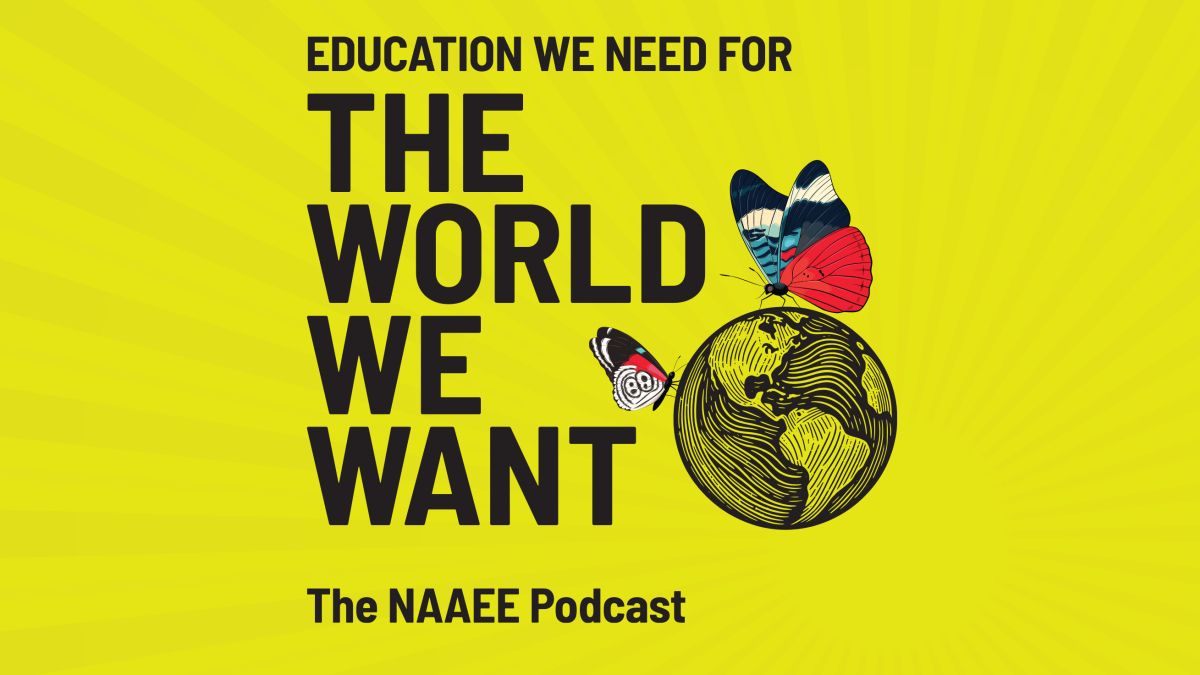
Imagine a world where communities thrive, curiosity sparks change, and hope fuels action. Welcome to The World We Want, the NAAEE podcast that's bringing a better future to life, one inspiring story at a time. Join us as we chat with people across continents and cultures who care about education and the environment—the trailblazers, visionary leaders, and everyday heroes making a difference.
Listen Now
Enjoyed This Episode?
Share your thoughts, takeaways, or resources you'd love to see featured by logging in or creating a free eePRO account.
